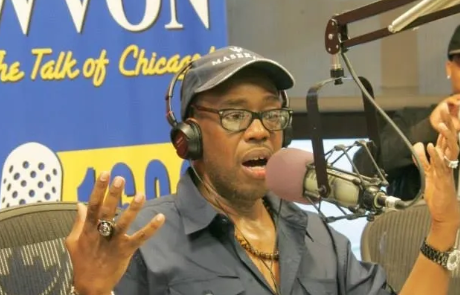CHICAGO — An Illinois federal district court judge has declared that the radio broadcasting company headed by Chairman Melody Spann Cooper cannot be held in violation of the Rehabilitation Act for its decision to part ways with a host who claims his dismissal came after he revealed his cancer diagnosis to management.
Alfred D. Sims sued Midway Broadcasting Company, owner of African American-targeted Spoken Word WVON-AM 1690 and Spanish-language community-focused Spoken Word WRLL-AM 1450 in Chicago in July 2022, filing a complaint through legal counsel Calvita J. Frederick and Associates that claimed Midway violated the Americans With Disabilities Act of 1990 and amendments enacted in 2008.
Sims also claimed Midway violated Section 504 of the Rehabilitation Act of 1973; equal protection violations pursuant to 42 U.S.C. § 1983; and Title VII of the Civil Rights Act of 1964.
The filing of the legal claim in U.S. District Court for the Northern District of Illinois, Eastern Division, came after Sims in April 2020 filed a charge with the Illinois Department of Human Rights and, in September 2020, with the Equal Employment Opportunity Commission alleging that Midway discriminated against him based on his disability, and terminated him because of this disability.
His disabilities were cancer, anxiety, and depression, the initial complaint filed with the federal court states.
Sims was hired by Midway in April 2015 as an on-air personality and producer; he hosted the nighttime “Real Talk, Real People With Chat Daddy” program. In June 2018, Sims’ relationship with Midway shifted from employee to independent contractor.
Here’s where the disability claim becomes a bit hazy, as Sims was diagnosed with cancer, anxiety and depression in 2008 — seven years before he joined Midway. Sims discussed his struggles on the air, the complaint states.
Fast-forward to March 2020, when COVID-19 pandemic restrictions suddenly, and harshly, impacted broadcast media in a big way. Many radio station ownership groups were instantly thrust into financial strain, including Midway. On March 16, 2020, Sims was notified by Cooper and Program Director Todd Ronczkowski that his show would be discontinued until the crisis of the pandemic had ebbed.
But, Sims claims, two days later Ronczkowski phoned him to ask if he could report to Midway one last time and appear on-air, to tell listeners that “he was sick and going to be taking time off because of his health issues” — something Sims disputes and says did not require him to take time off.
With four other on-air personalities not impacted by COVID-19-era job cuts, Sims says he was singled out — and his cancer diagnosis, along with anxiety and depression, are the reasons why he lost his job.

Midway, with attorney Linda Chatman as its legal counsel, in October 2022 answered Sims’ complaint, denying the allegations and his version of the events that transpired in March 2020 regarding his departure from WVON. In January 2023, a motion to dismiss was filed by Midway. Then, in October 2023, a Memorandum Opinon and Order arrived, based on an important move from Chatman on behalf of Midway. The company decided to file a motion that sought to dismiss Count II, a violation of the Rehabilitation Act of 1973, which protects individuals from discrimination “under any program or activity receiving Federal financial assistance[.]”
This move was based on the discrete issue of whether Midway receives Federal financial assistance. Sims claimed that Midway “receives federal funding” but, Judge LaShonda Hunt said at the time that Midway’s argument to the contrary “relies on a matters outside
the pleadings.” As such, her court denied Midway’s motion and had until October
27, 2023, to address Sims’ allegation on Count II.
Midway did so. Then, in February of this year, a motion for summary judgment was submitted to the court. On Monday (8/26), an amended complaint pertaining to Count II was granted by Judge Hunt, who determined that, indeed, the Rehabilitation Act did not apply to Midway. While Paycheck Protection Program loans received by Midway through the Small Business Association were noted by Judge Hunt, these payments came after the period of time in which Sims was an independent contractor for Midway.
The ADA claim and Civil Rights Act violation charge remain matters Hunt will rule on, short an out-of-court settlement between Sims and Midway.




